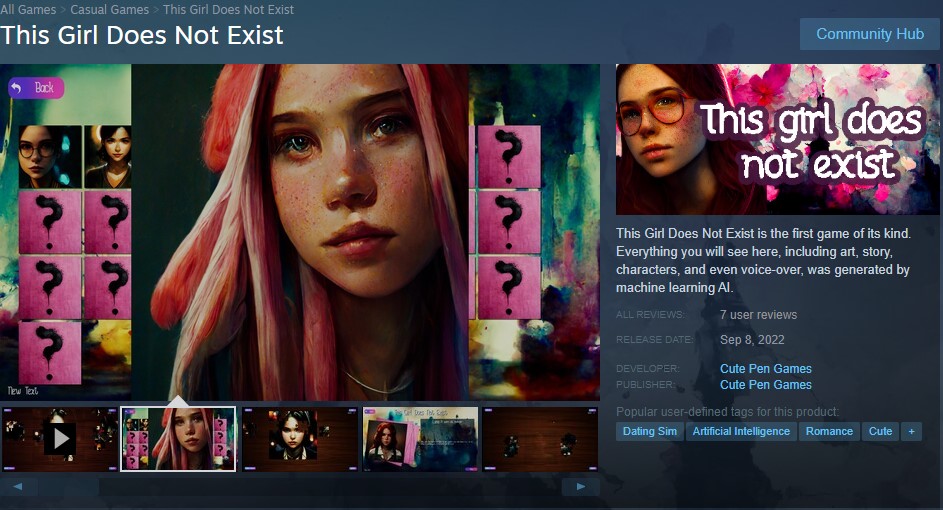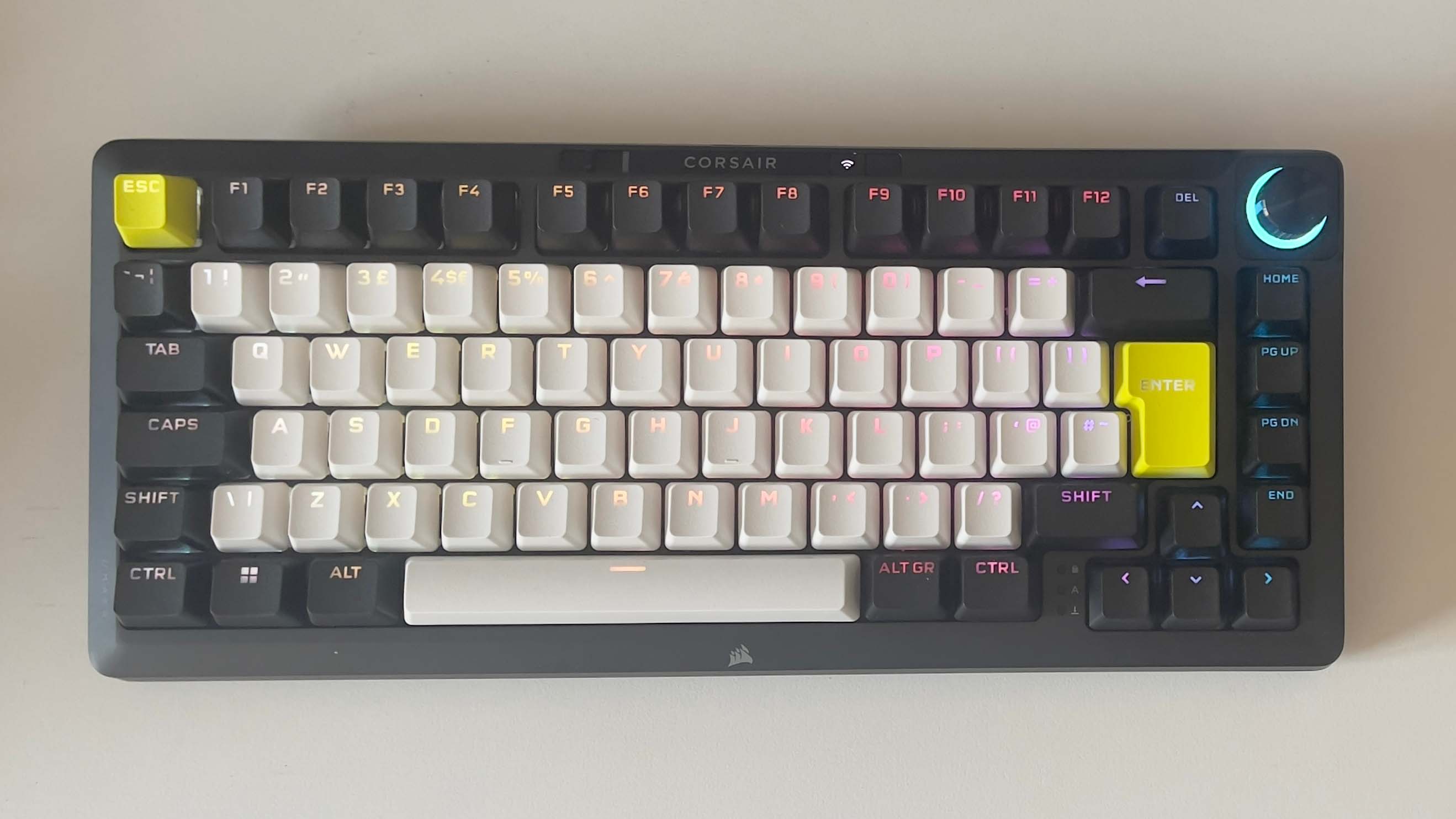Valve is scrutinizing games with AI assets on Steam, says avoiding copyright violation 'is the developer's responsibility'
There's no full, formal policy as of yet, but Steam's boundaries are starting to materialize.

The controversy around AI-generated content for videogames is starting to impact the biggest digital distribution platform on PC: an anonymous developer recently made a post on reddit (first spotted by Simon Carless) about the rejection of their game, claiming that "Valve is not willing to publish AI-generated content anymore." In a statement to PC Gamer and other publications, Valve elaborated that it is not opposed to generative tools as a concept, but instead takes the copyright concerns around them extremely seriously.
The developer says they tried to get a game approved on Steam about a month ago "with a few assets that were fairly obviously AI generated" and received the following response:
"While we strive to ship most titles submitted to us, we cannot ship games for which the developer does not have all of the necessary rights.
"After reviewing, we have identified intellectual property in [Game Name Here] which appears to belong to one or more third parties. In particular, [Game Name Here] contains art assets generated by artificial intelligence that appears to be relying on copyrighted material owned by third parties. As the legal ownership of such AI-generated art is unclear, we cannot ship your game while it contains these AI-generated assets, unless you can affirmatively confirm that you own the rights to all of the IP used in the data set that trained the AI to create the assets in your game."
The developer says Valve failed the build and offered an opportunity to re-submit with all AI-generated content removed. "I improved those pieces by hand," says the dev. "So there were no longer any obvious signs of AI, but my app was probably already flagged for AI generated content, so even after resubmitting it, my app was rejected."
Valve's response was another rejection, saying "we are declining to distribute your game since it’s unclear if the underlying AI tech used to create the assets has sufficient rights to the training data." Valve did, at least, offer the dev a refund of their submission fee.
"It seems like Valve doesn’t really have a standard approach to AI generated games yet," said the developer, "and I’ve seen several games up that even explicitly mention the use of AI."
Keep up to date with the most important stories and the best deals, as picked by the PC Gamer team.

In its statement to PC Gamer, Valve said that "The introduction of AI can sometimes make it harder to show a developer has sufficient rights in using AI to create assets, including images, text, and music. In particular, there is some legal uncertainty relating to data used to train AI models. It is the developer's responsibility to make sure they have the appropriate rights to ship their game.
We know it is a constantly evolving tech, and our goal is not to discourage the use of it on Steam; instead, we're working through how to integrate it into our already-existing review policies. Stated plainly, our review process is a reflection of current copyright law and policies, not an added layer of our opinion. As these laws and policies evolve over time, so will our process."
Valve did not directly confirm or deny that the story of the anonymous developer on Reddit was legitimate, but the content of Valve's statements to us and the rejection emails are pretty much in sync.
The fact that AI models are trained on datasets containing copyrighted material remains a legal grey area, and it doesn't help that many of the companies involved don't want to be upfront about just what exactly they're using for their datasets. A prompt-generated "science fiction cityscape" will be crafted from a slurry of untold thousands of human-drawn science fiction cityscapes, not parsed and reinterpreted by a human being, but scraped and frankensteined together by pattern-recognizing software. Those artists are often understandably none too happy about having their work used in this way.
Big rights holders are understandably not happy as well, and one of the test cases that may set a precedent will be Getty's lawsuit against Stability AI, which Getty alleges used over 12 million images "without permission [...] or compensation" to train AI software. But where the courts will land, in the US at least, remains a massive (and potentially very expensive) unknown.
Why might this worry Valve especially? The scale and size of Steam, and the simple fact it's a distribution platform, mean the potential liabilities for getting this wrong are incalculable. There are games that incorporate AI on Steam right now, but it may be that these are early exceptions and as the tech achieves more widespread adoption and begins running into more barriers and scrutiny.

Rich is a games journalist with 15 years' experience, beginning his career on Edge magazine before working for a wide range of outlets, including Ars Technica, Eurogamer, GamesRadar+, Gamespot, the Guardian, IGN, the New Statesman, Polygon, and Vice. He was the editor of Kotaku UK, the UK arm of Kotaku, for three years before joining PC Gamer. He is the author of a Brief History of Video Games, a full history of the medium, which the Midwest Book Review described as "[a] must-read for serious minded game historians and curious video game connoisseurs alike."
- Ted LitchfieldAssociate Editor

